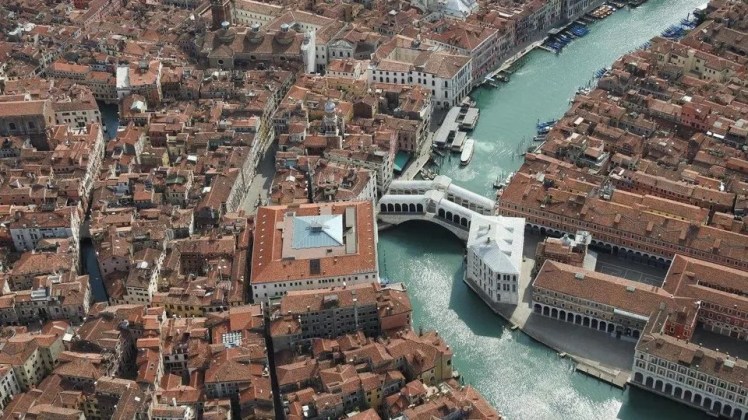The situation has worsened, raising the possibility of being moved to the Endangered Sites list. Cruise ships should go to Trieste if not moved out of the lagoon.
[Ed. Note: It was UNESCO’s threat to list Venice as Endangered four years ago that led to the creation of this web site. So, I just had to say how disappointing it is to see UNESCO come out four years later saying things are essentially the same but worse.]
26 July 2020
By Enrico Tantucci
VENEZIA.
Reduce the number of tourists coming to Venice. Don’t build more new hotels. Finally choose the definitive solution to keep cruise ships out of the lagoon. And, in the event that this cannot be made to happen, move them to a completely different port terminal, for example the one at Trieste. These are only some of the 50 recommendations contained in the ample report of the mission to the UNESCO heritage site of Venice and the lagoon, written by the three inspectors from the World Heritage Committee, ICOMOS and Ramsar, after their four day visit at the end of January.
The report has just been sent from the World Heritage offices to the Minister of Cultural Heritage, which will forward it to the Minister of the Environment and of Infrastructure, and then also to the City of Venice for their own observations before the report is discussed at the next UNESCO Committee meeting. There is a concrete risk this time that Venice and the lagoon will be added to the UNESCO Endangered World Heritage Sites list.
The Minister of Cultural Heritage considers the evaluation expressed in the report by inspectors sent by UNESCO to be negative. They were sent to examine the state of compliance with the recommendations already made in 2015, and the decisions of the World Heritage Committee in the following years up to the meeting at Baku in 2019, which postponed until the next Committee reunion – a date for which has yet to be set due to the Coronavirus emergency – the final decision about the fate of Venice.
For the inspectors the progress being made in Venice in confronting the problems related to tourism and the environment is too slow and limited, and the overall situation in the city has worsened. The inspectors voice serious concerns about the future of the city. They say it is urgent and necessary to adopt much stronger measures to care for the city, and to craft a strategic vision for reaching this goal, now absent.
There are eight subjects relative to Venice and the lagoon that the inspectors focus on in the report, including tourism, housing, the cruise ship problem, development projects in the city, the Special Law, MoSE and the lagoon ecosystem.
Although the coronavirus emergency has made for thinking about this in recent months, the UNESCO report recommends reducing the number of tourists coming to Venice, and a stop to the projects that instead go in the opposite direction, such as the expansion of the airport at Tessera. A negative judgement is also given to the building of new hotels in recent years, which has further increased the tourist pressure on the city. Thus they call for a stop to building new hotels, tourist lodgings or Bed and Breakfasts. The report instead calls for incentives for housing.
The report also laments the fact that no definitive decision has yet been made or acted on for banning all cruise ship passages in the lagoon. The report also protests the excavation of Canale Vittorio Emanuele due to possible negative environmental effects. If the city cannot manage in a reasonable amount of time to define the location of a new cruise ship terminal outside the lagoon, the inspectors recommend moving the cruise ships, or some of them, to other properly equipped ports, such as Trieste.
The inspectors also recommend stopping the big projects that can increase the environmental and anthropic impact on Venice and the lagoon, beginning, for example, with the new GPL (Compressed Liquid Gas) storage depot at Chioggia. Projects of these dimensions should first be submitted to UNESCO for impact studies. On this subject, the report asks that the fact that Venice is a UNESCO site should be inserted in the new Special Law, thus giving some legal cover to the restrictions that such a listing brings with it.
The report also points out an excess of “governance” over the lagoon, with too many subjects – State, Region, City, ancillary bodies – with responsibility for it, with inevitable conflicts of jurisdiction and a lack of a shared vision. The responsibilities should therefore be reduced and concentrated in the local offices. There is also concern for the lagoon ecosystem, with a call for the adoption of a morphological plan for the lagoon, but also for a plan for the waters and a plan for the climate. For MoSE the need is for it to be made fully functional, but also for monitoring and carrying out the mitigation interventions already planned.
Source: La Nuova Venezia

